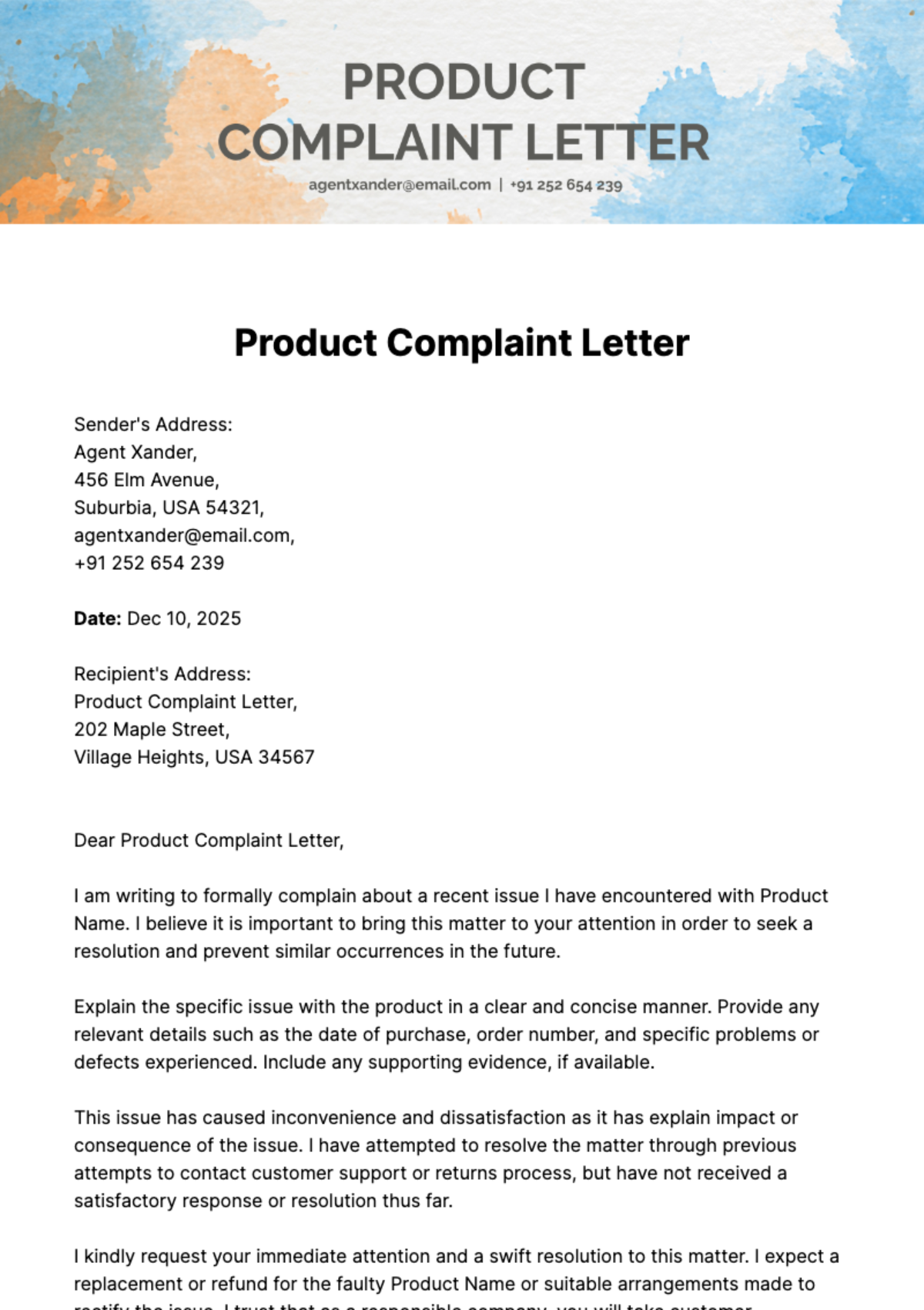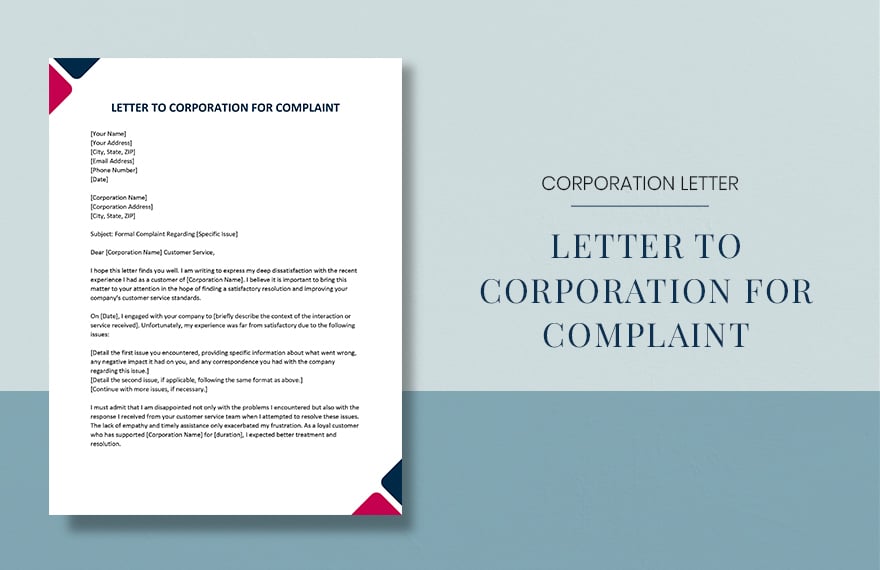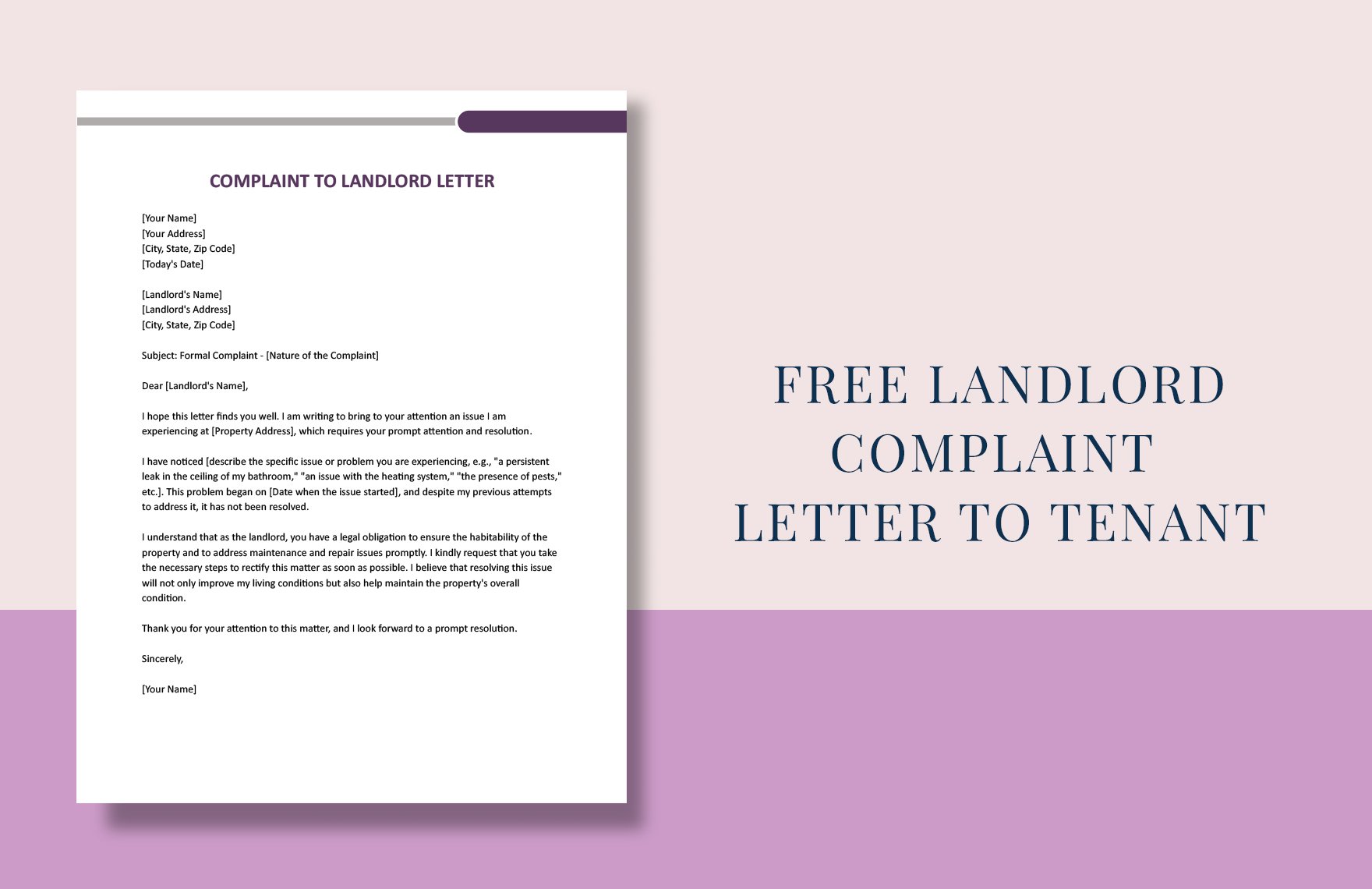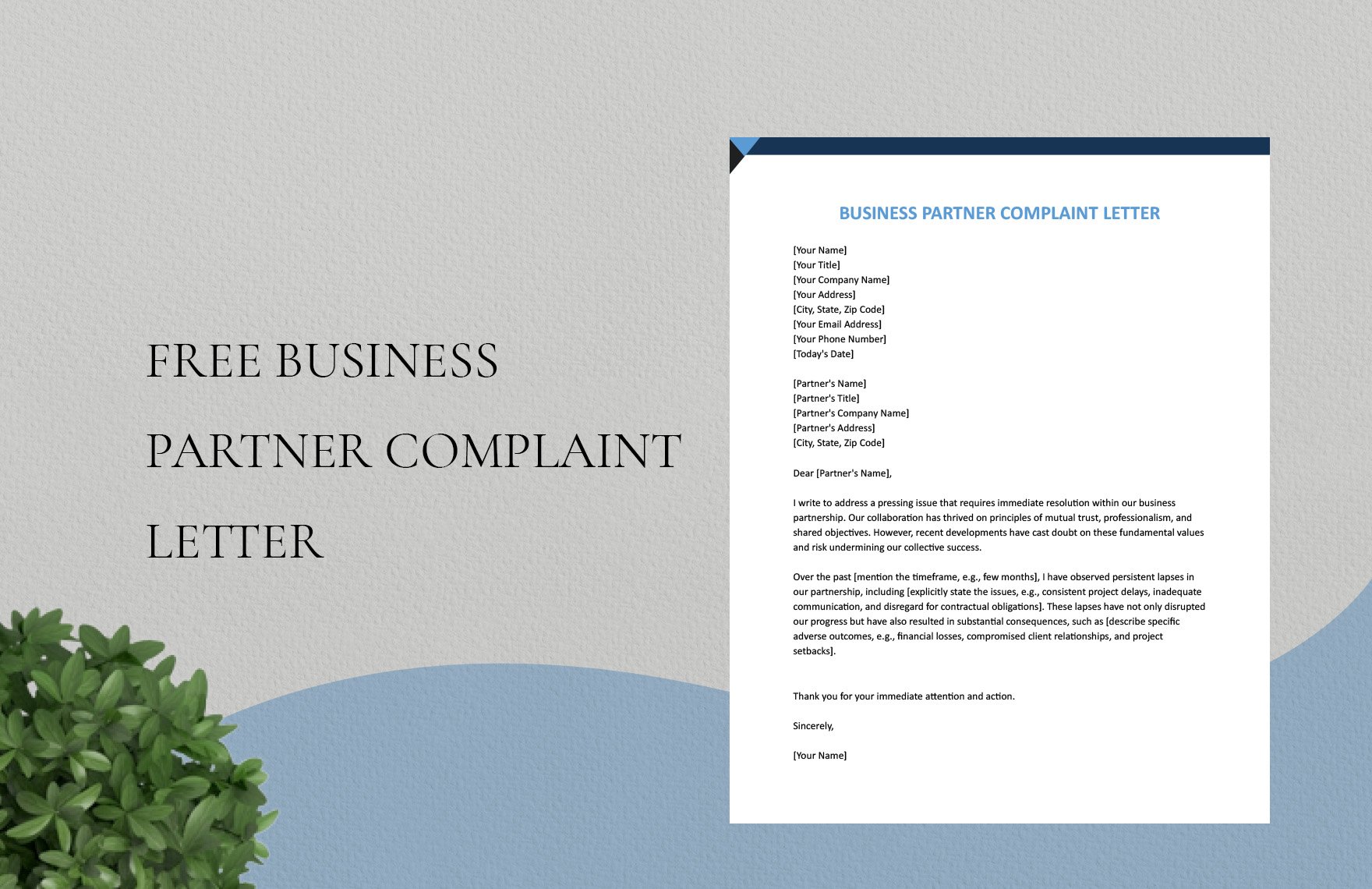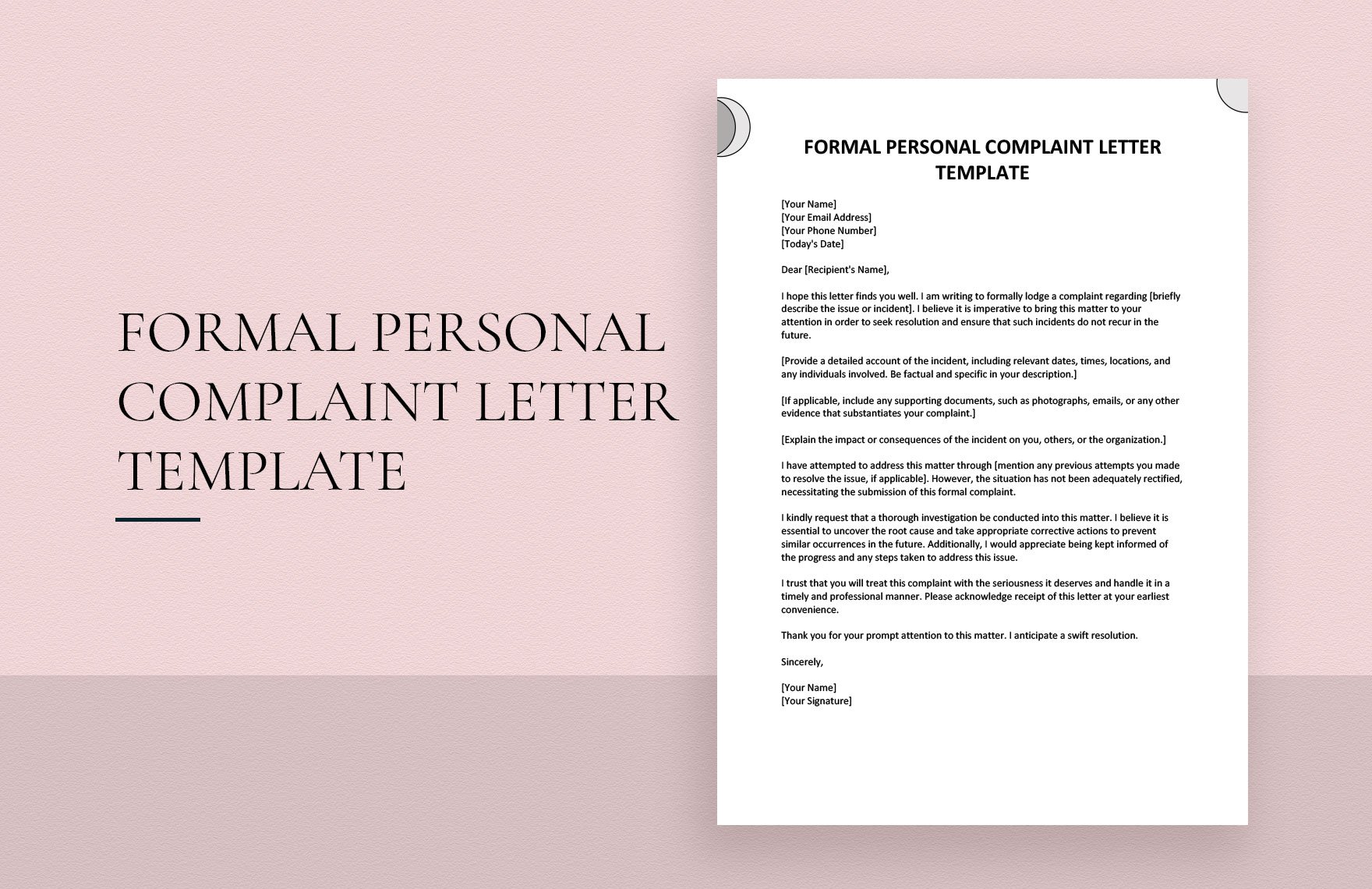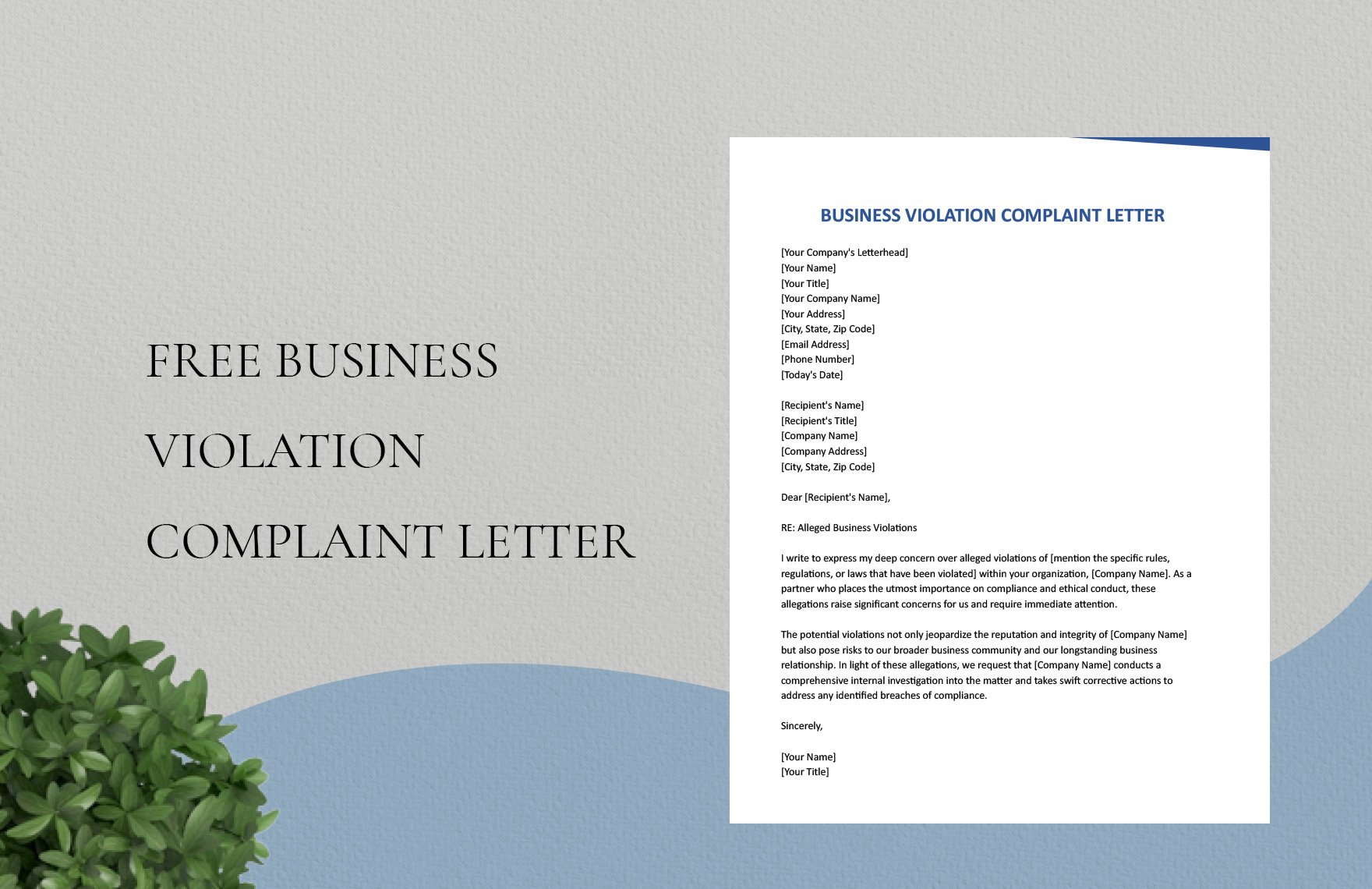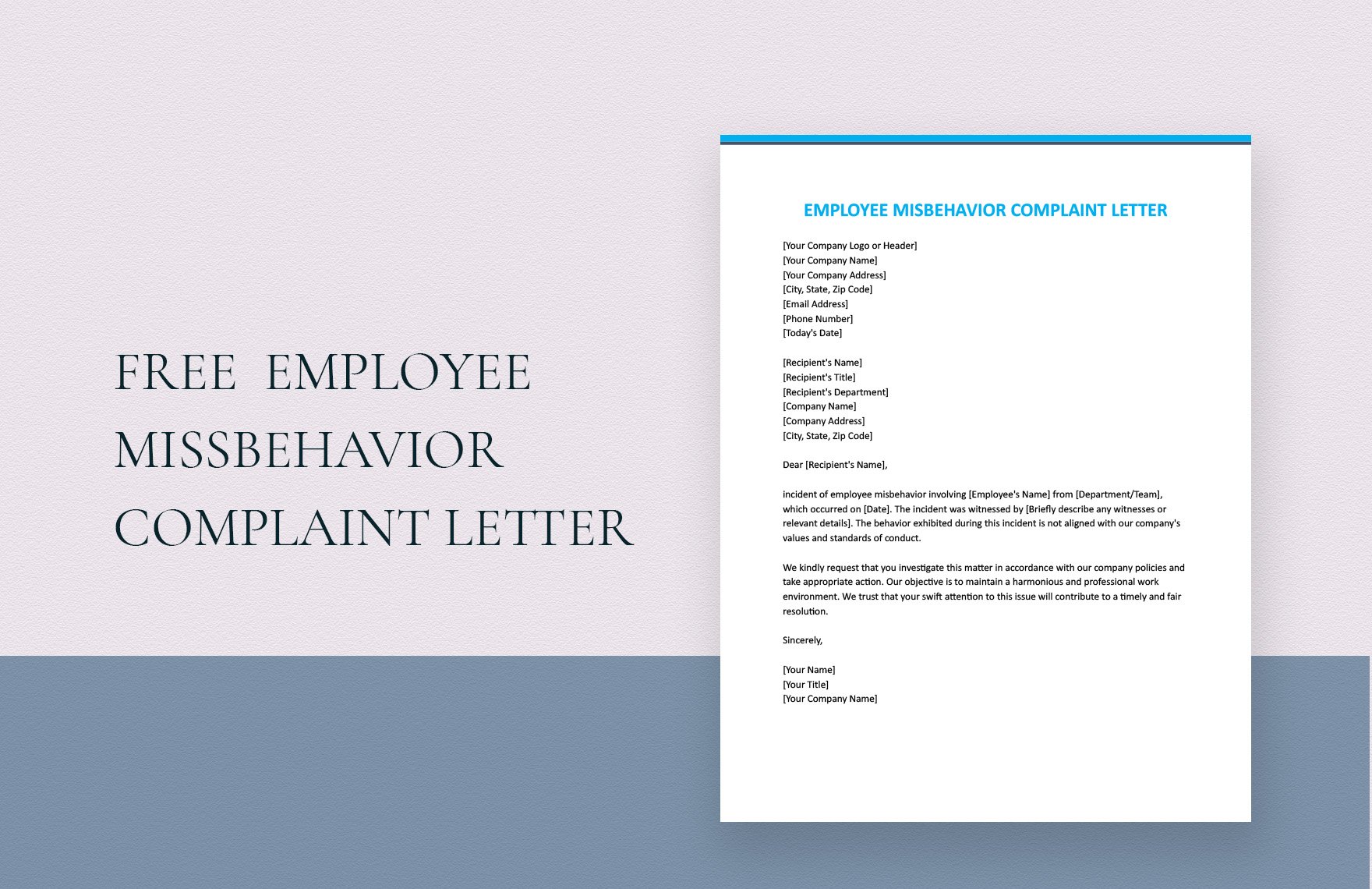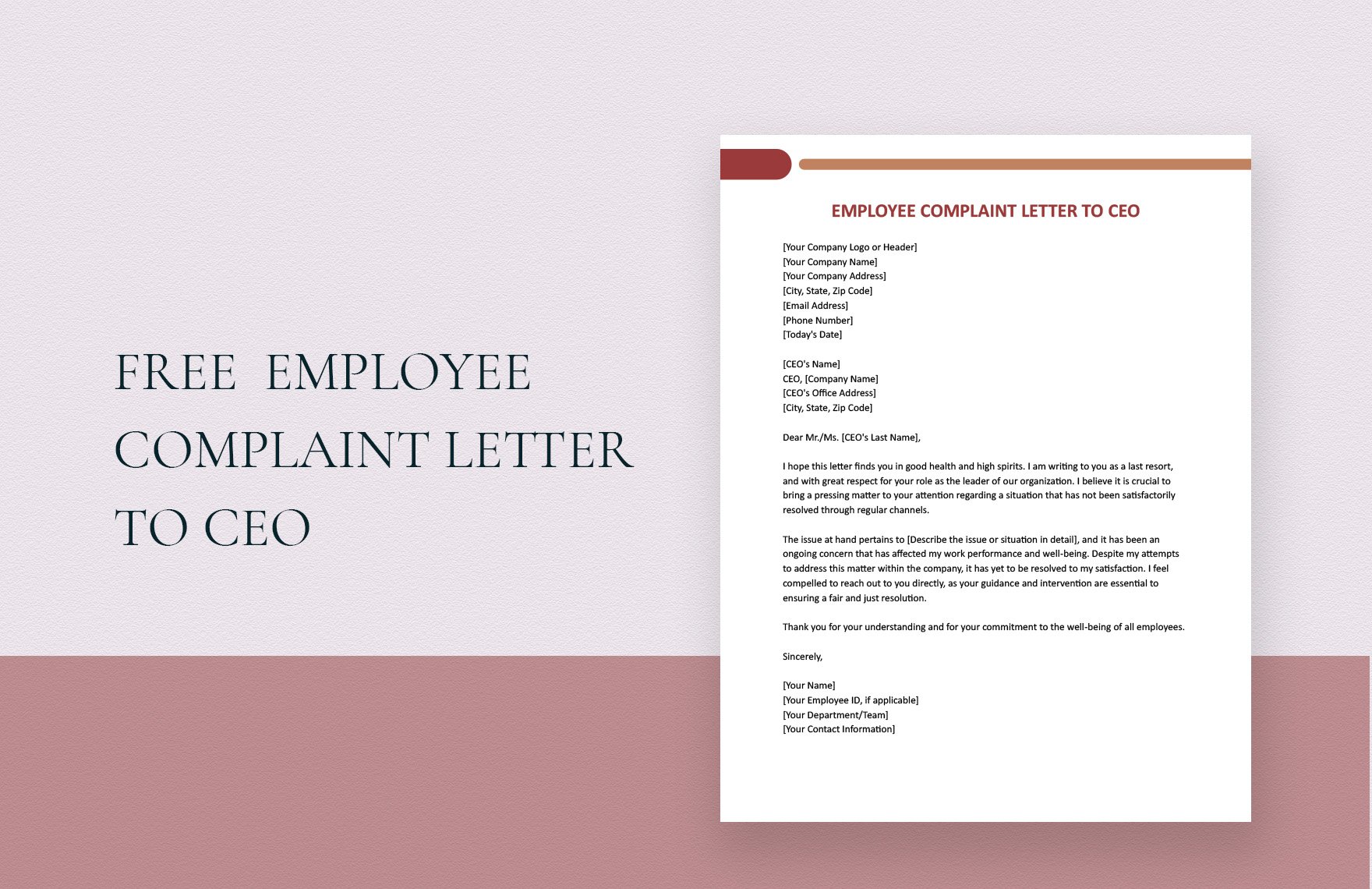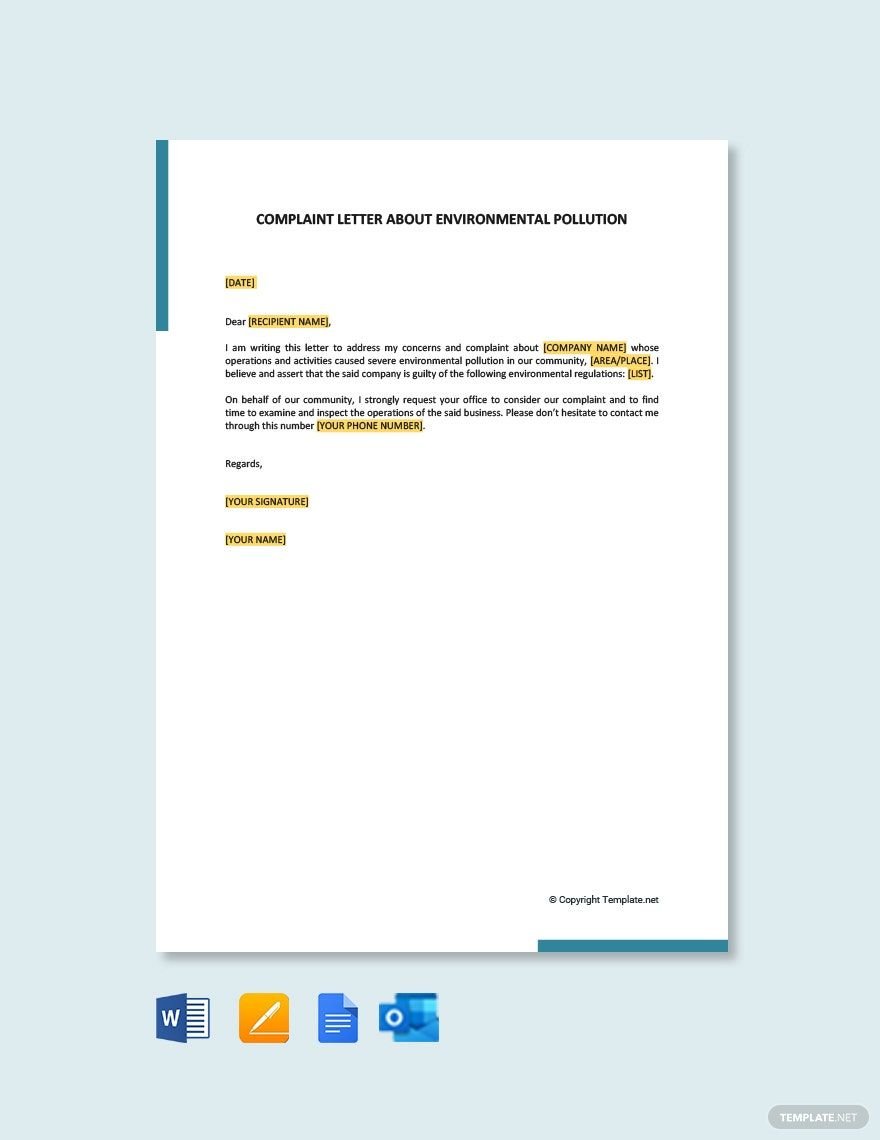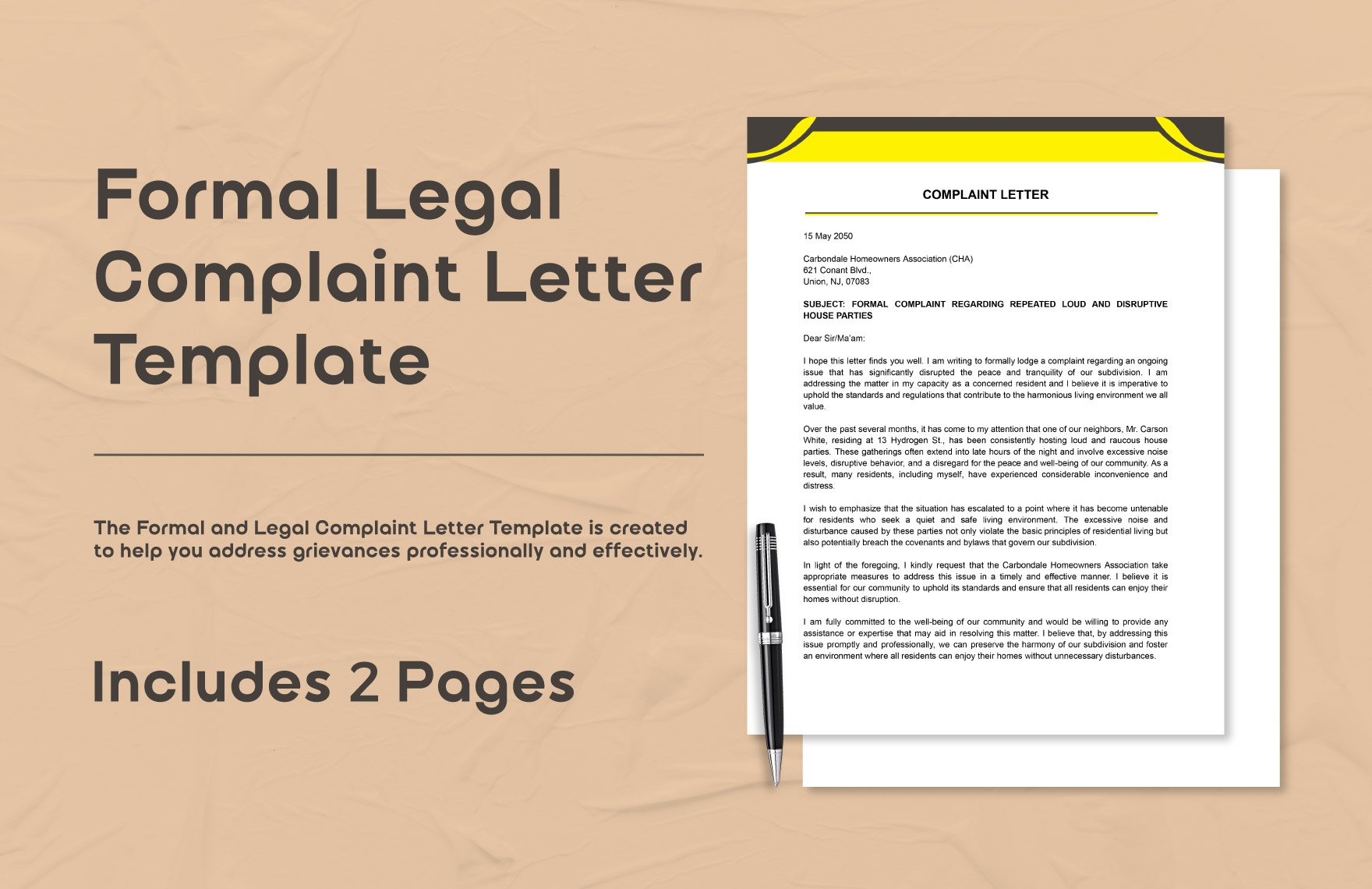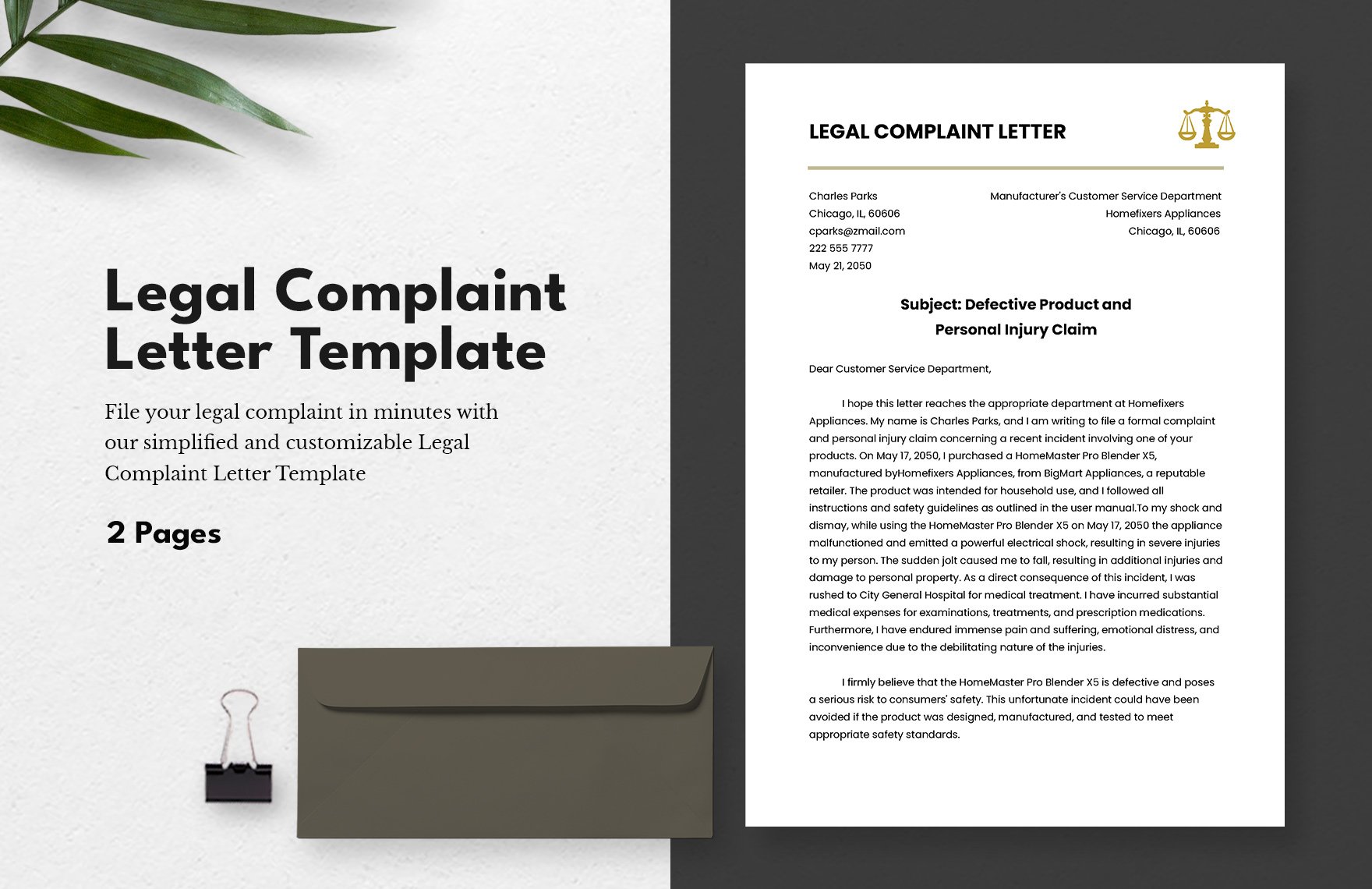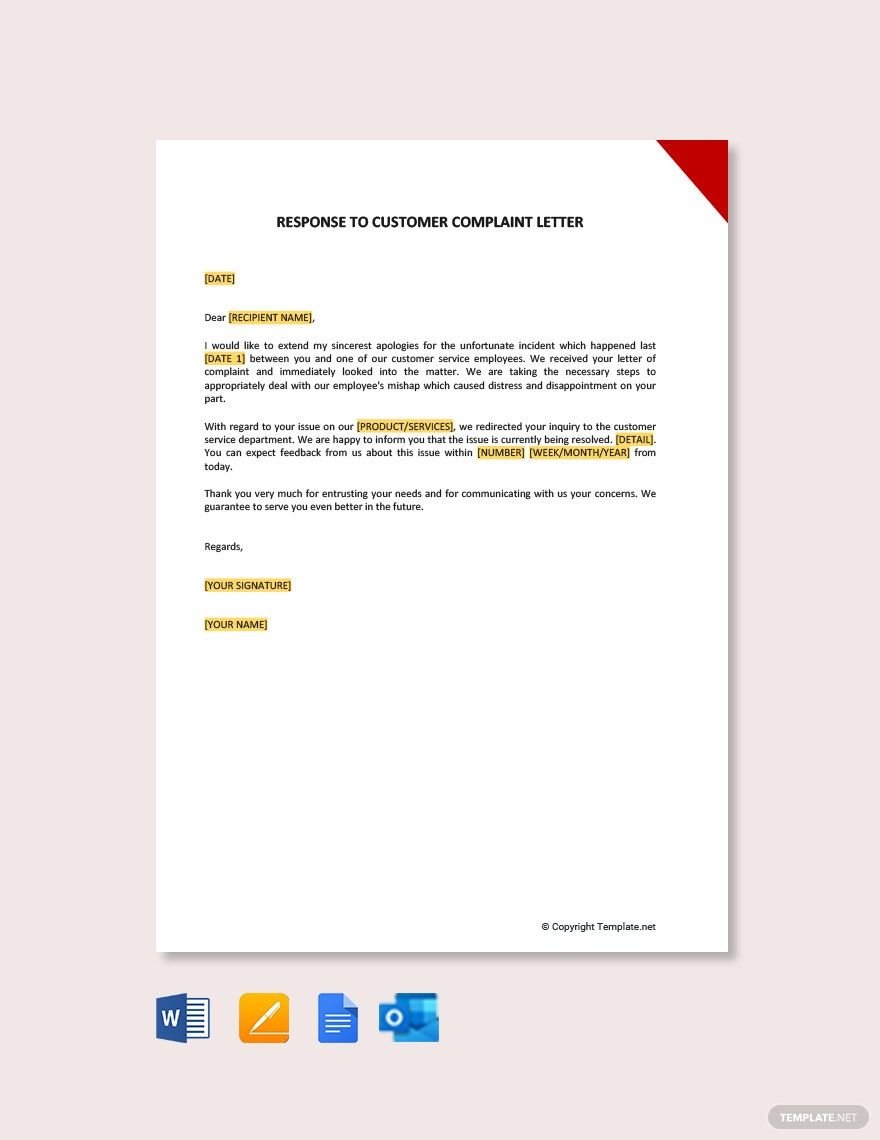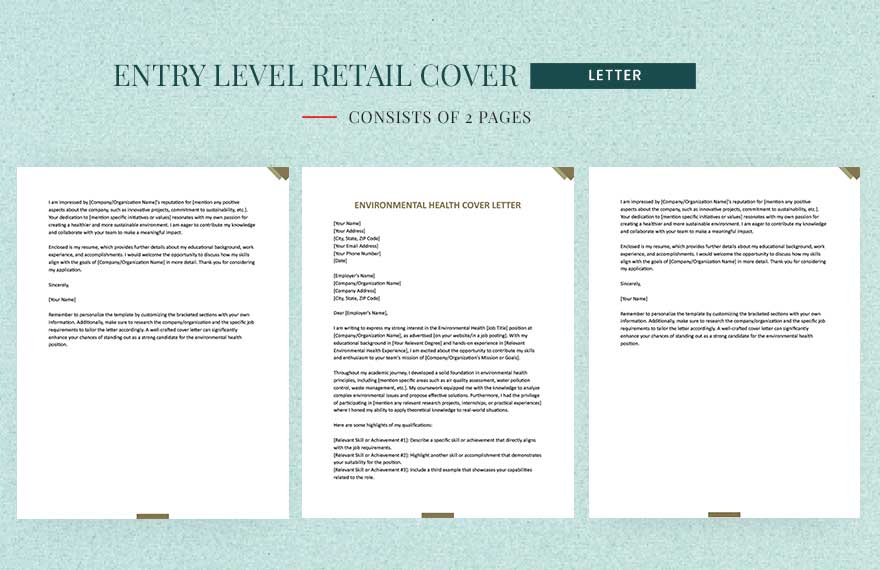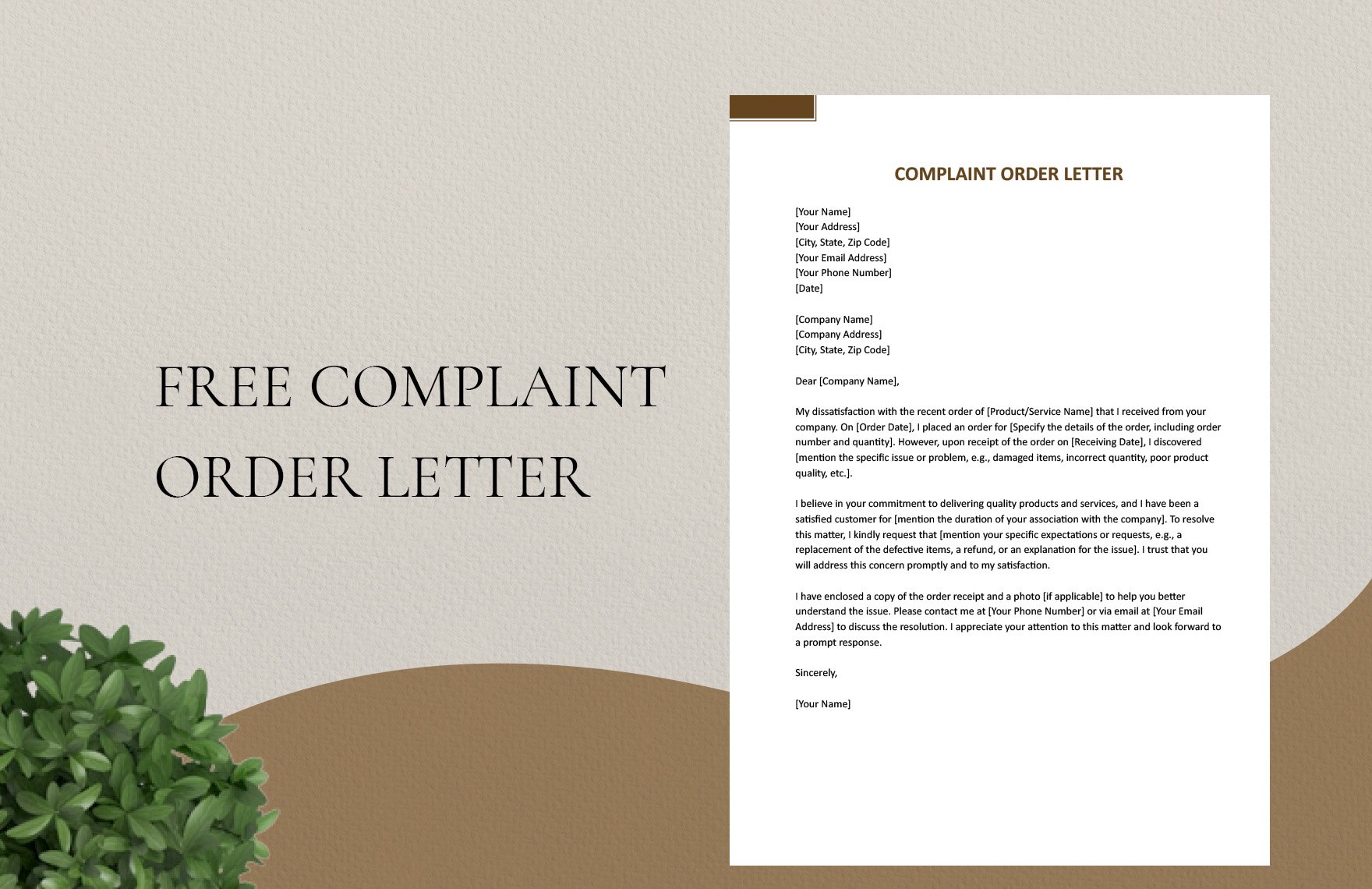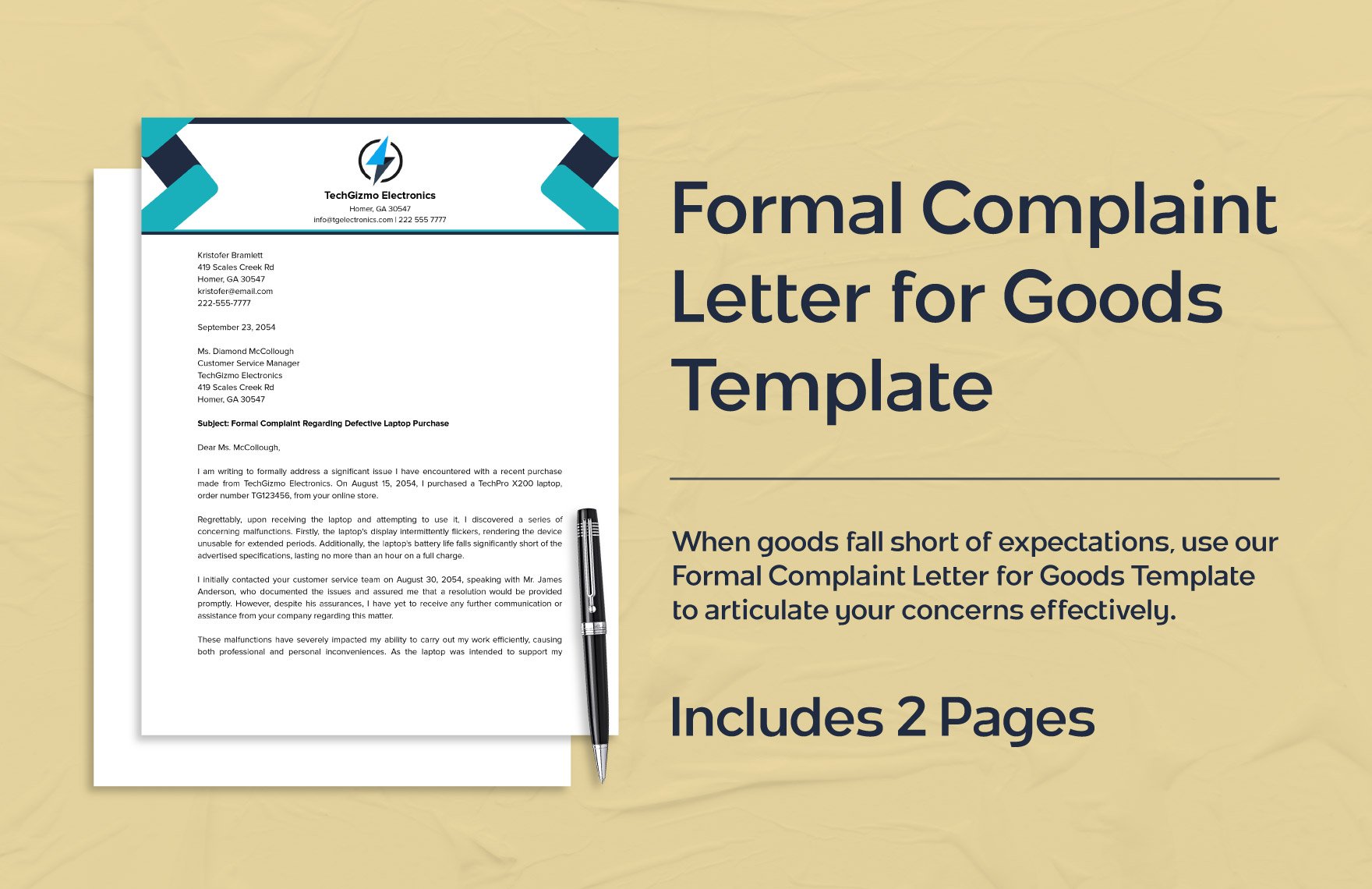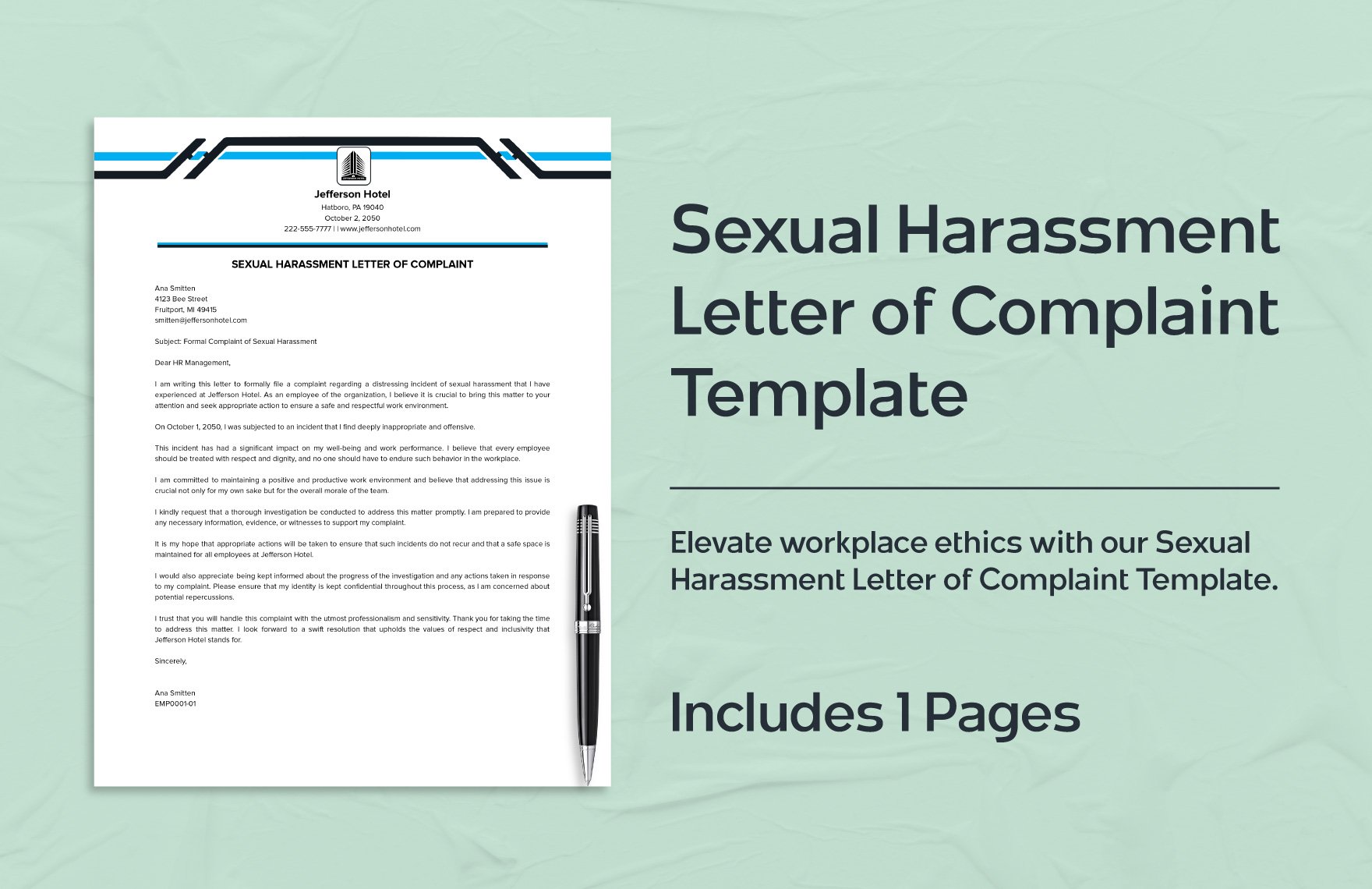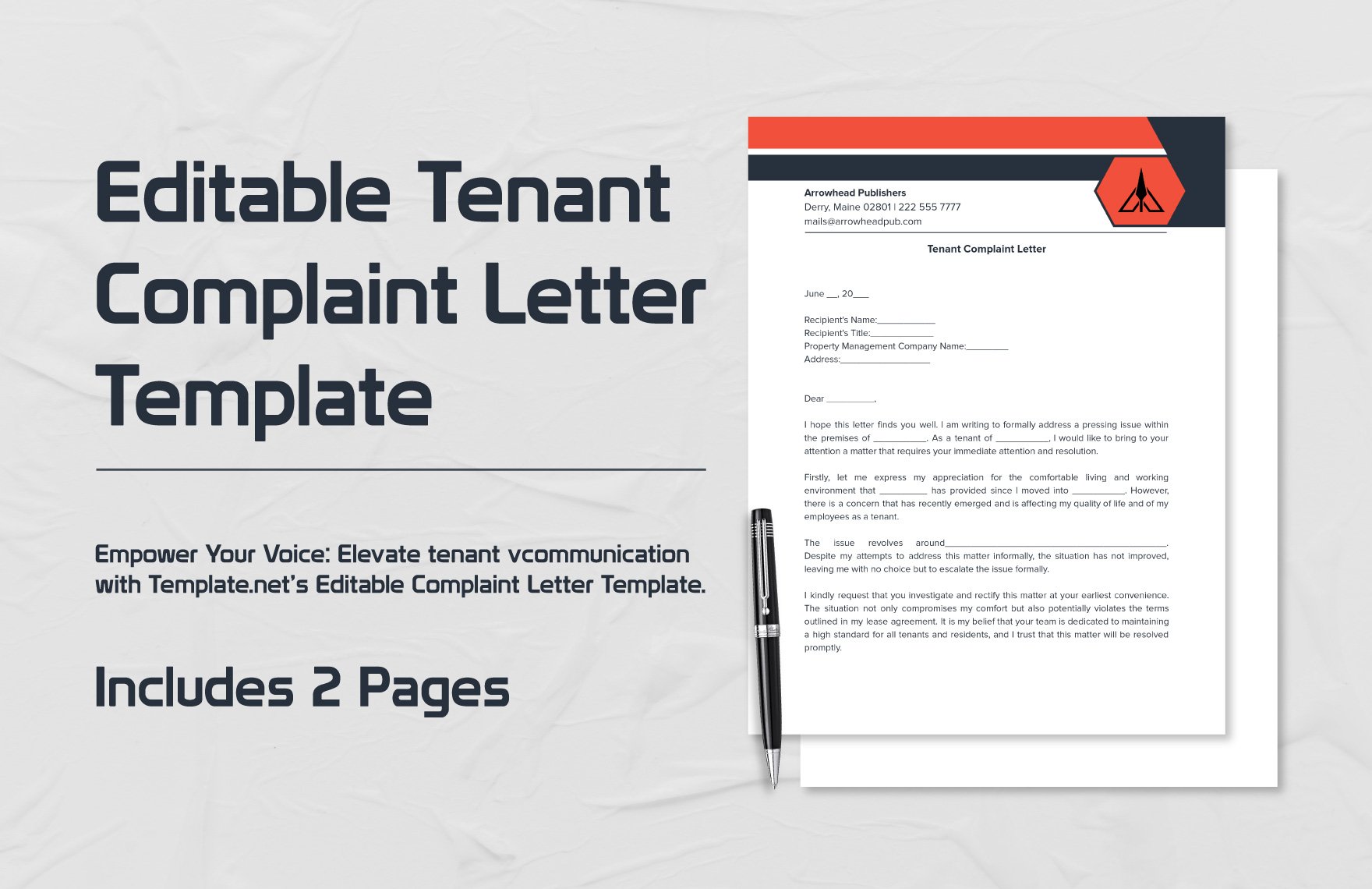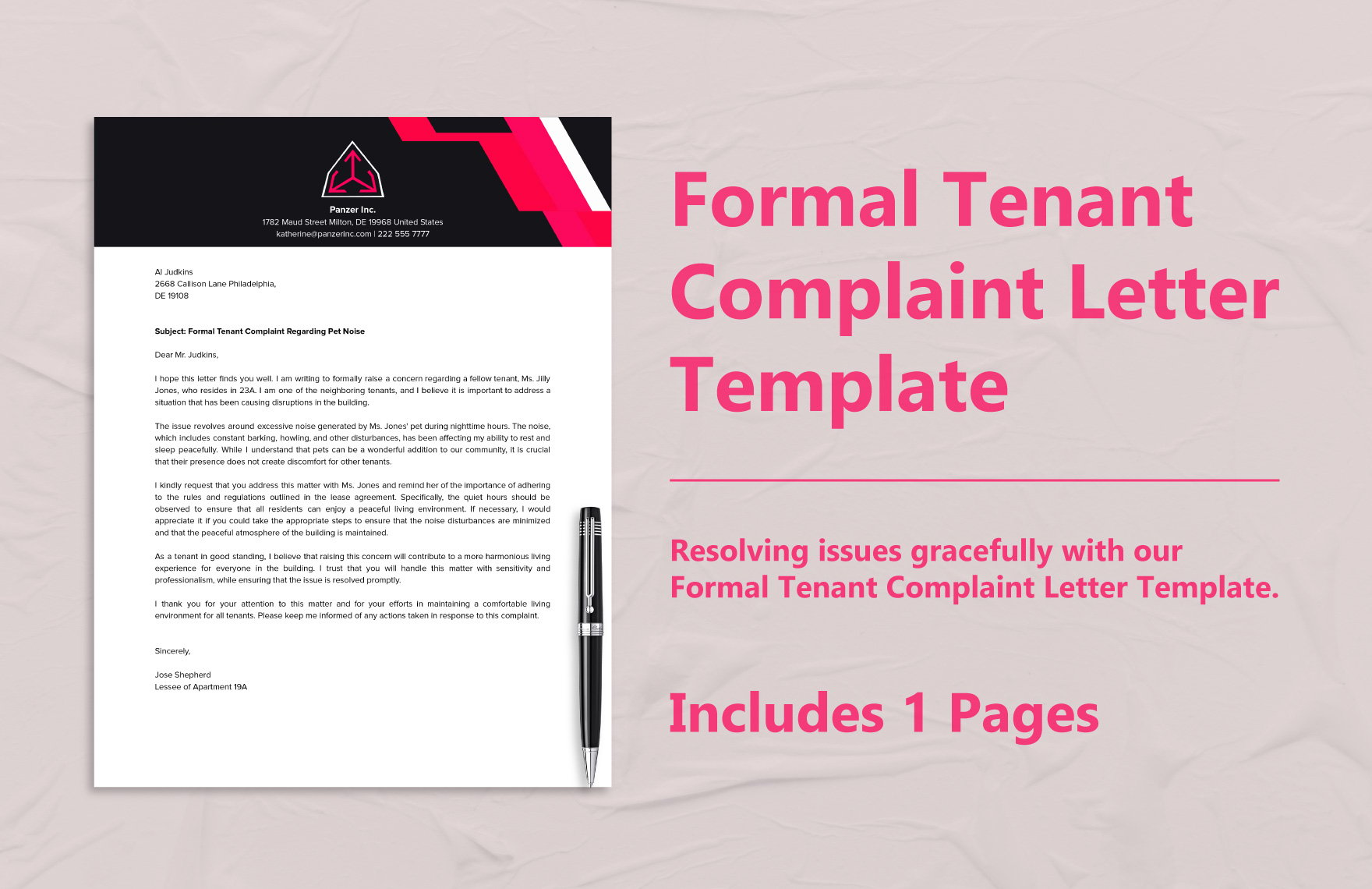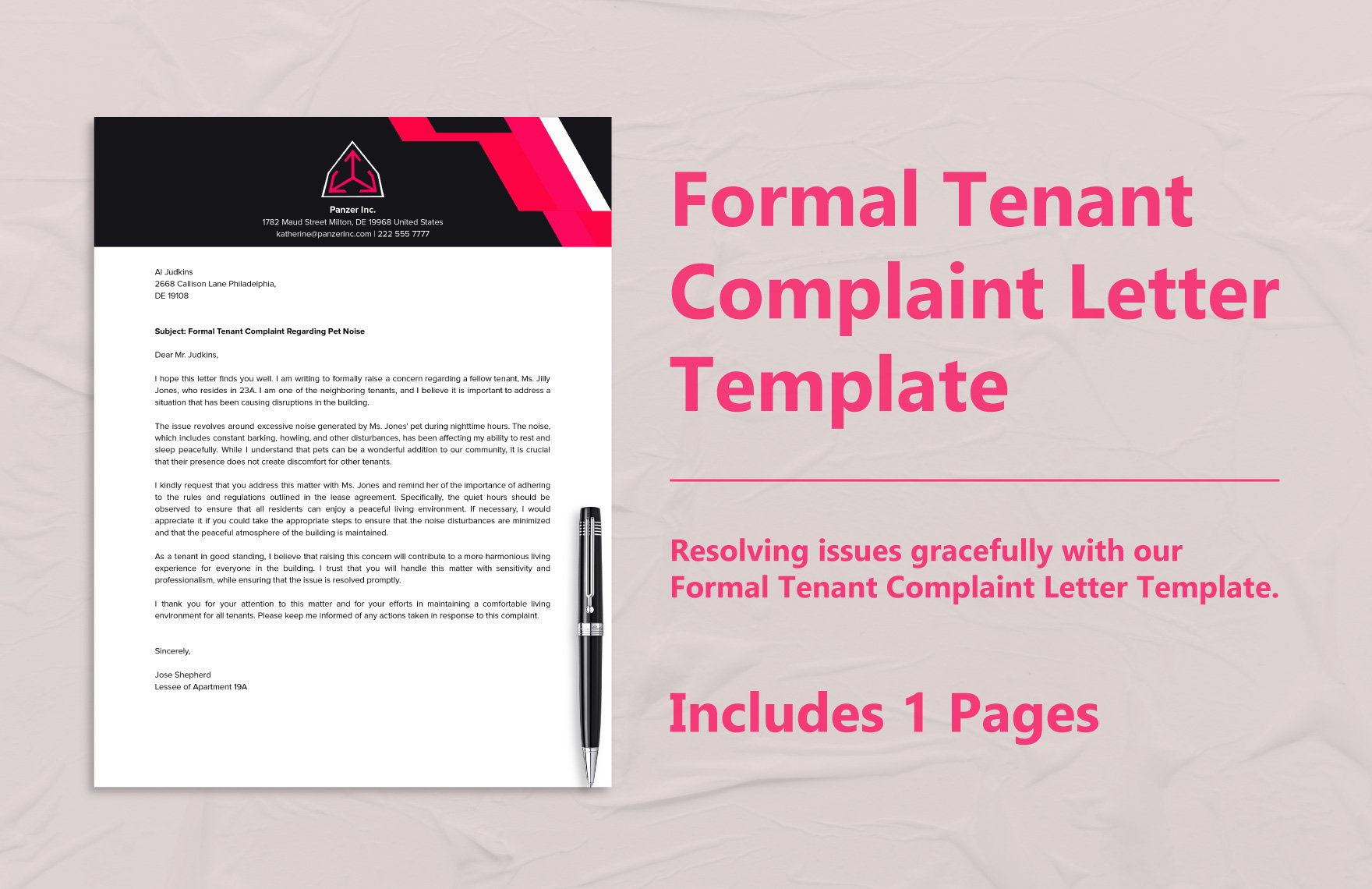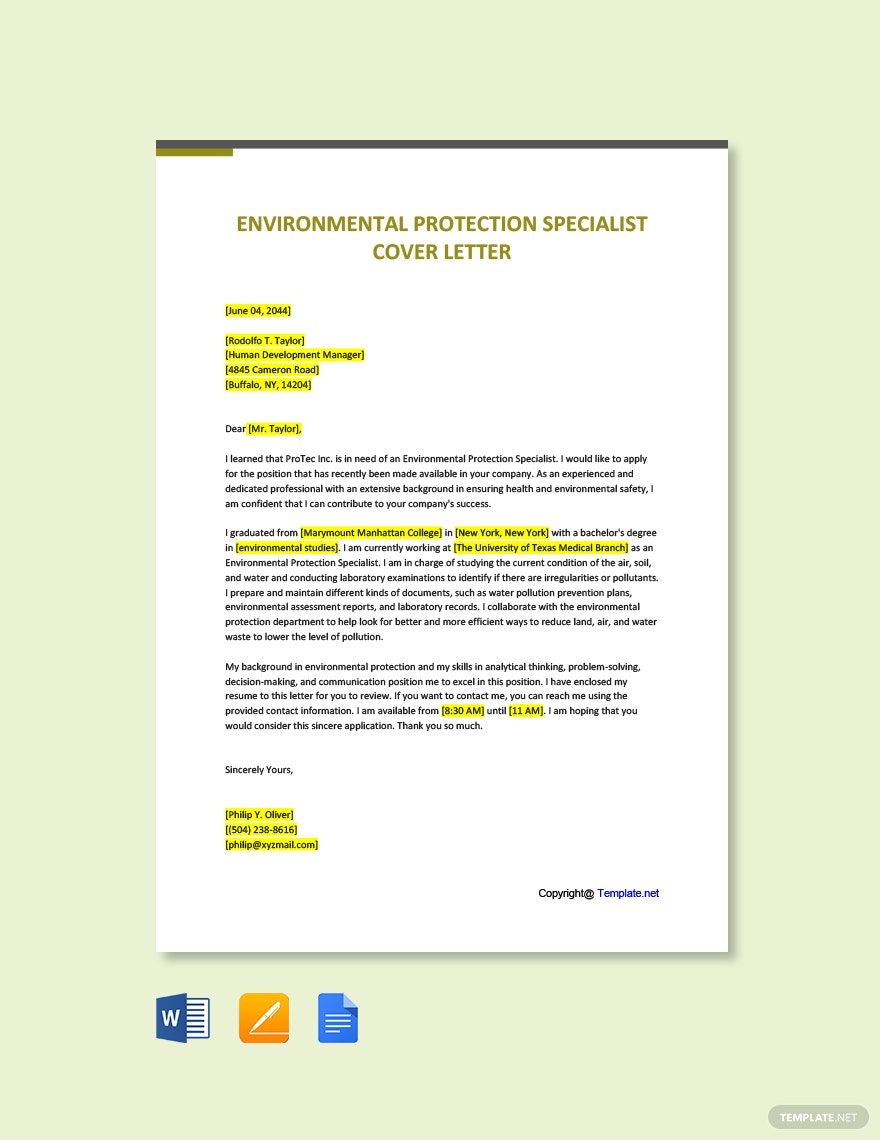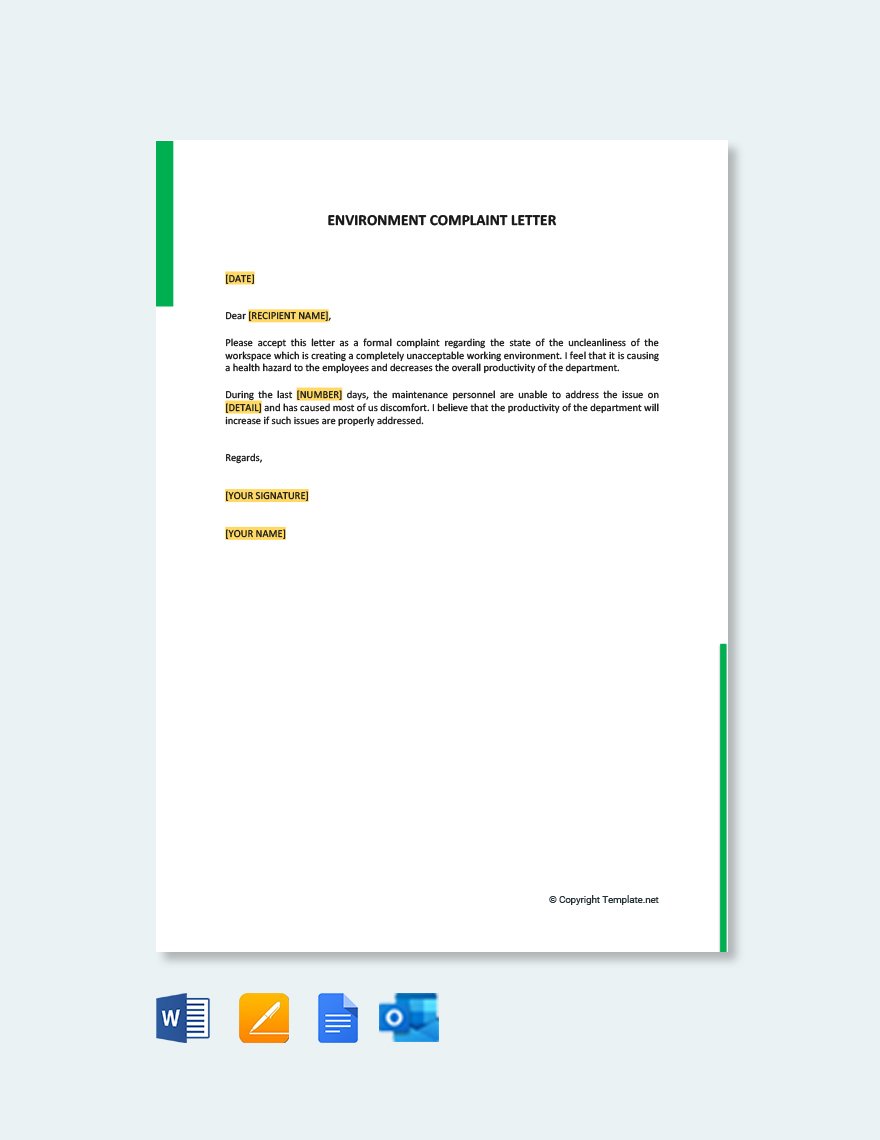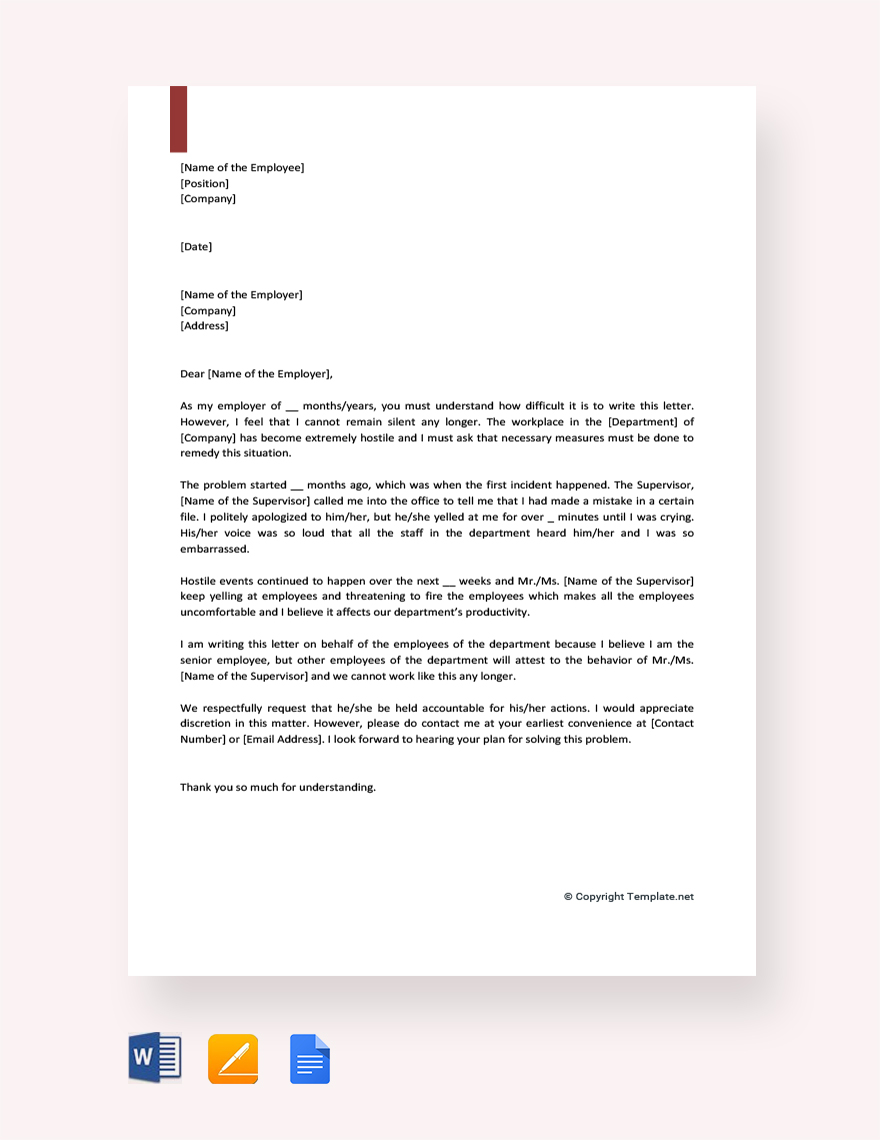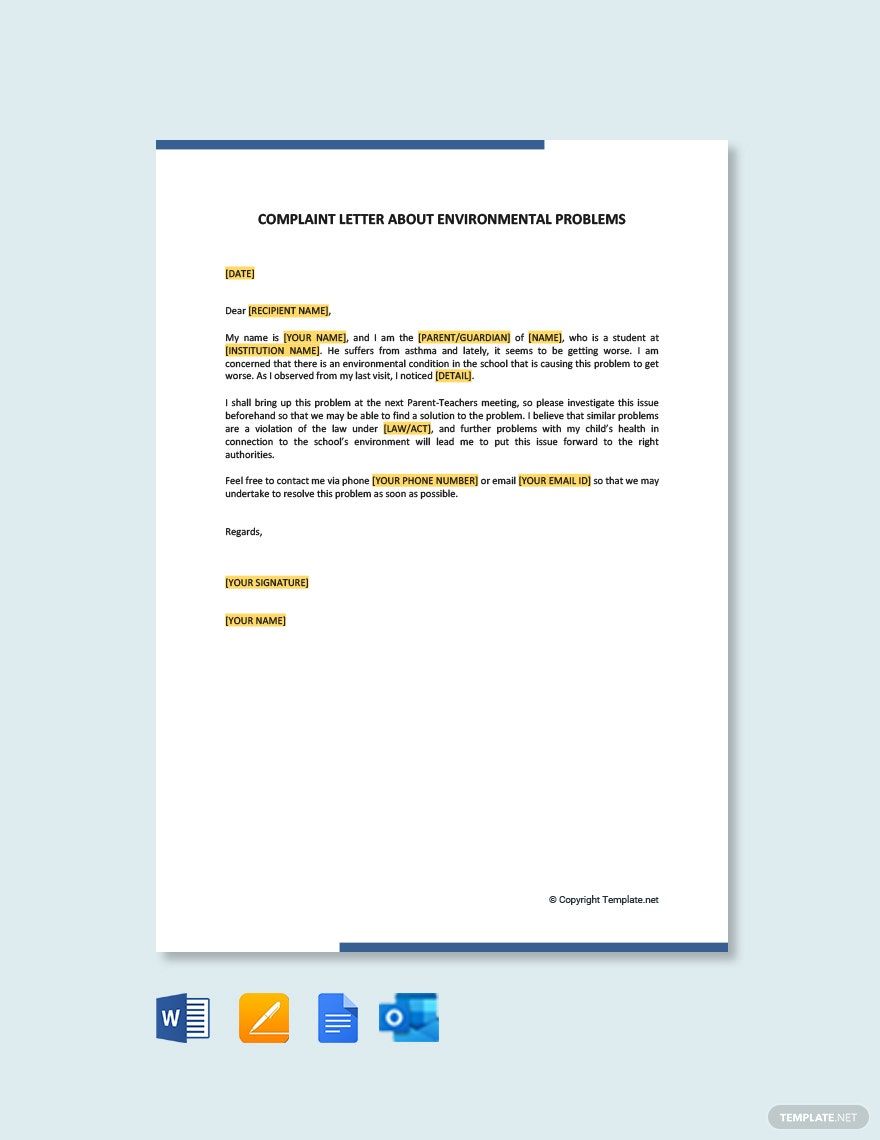Complaining isn't always bad. Sometimes, it helps you put an end to hostile workplace relationships and some environmental pollution. If you have any complaints, make sure to voice them out through environment complaint letters. Writing this letter is a formal way to show your concern and need to resolve your environmental problems. And instead of writing from scratch, explore our formal stack of Environment Complaint Letter Templates. These are 100% editable and printable. They already have well-written content to help you express your complaints. What are you waiting for? Download a template now!
What Is an Environment Complaint Letter?
An environment complaint letter contains complaint, demand, or notice about environment pollution or a workplace environment problem. People who usually write these letters are concerned citizens, employees, and governmental authorities.
How to Write an Environment Complaint Letter
A Stanford 1996 research found out that too much complaining damages your health. But when you're right, you have the right to complain. So, turn your complaint about your environment into formal writing with the help of the tips below.
1. Write a Valid Reason for Complaining
Shallow reasons can put your formal complaint in the bad light. So, before you write your complaint, weigh if its reasonable or not. Sensible letter reasons can be a hostile work environment, workplace harassment, environment pollution, or unfair treatment.
2. Include Clear Details
Write your complaint or grievance letter clearly. The recipient, such as your manager or employer has to understand where you're coming from. The only way to do it is to include clear details of the event(s) on the printable letter.
To illustrate, when you're complaining about a co-worker who's unkind to you, explain what the person did. And share how the person's hostility has affected your productivity or mental health.
3. Show Respect
You might feel angry right now, but it doesn't mean you're going to pour it out on the formal letter. Compose yourself and show your sensibility through your words. Never threaten or terrorize the recipient or the person you're complaining about.
4. Keep the Letter Simple
No one wants to read a complicated sample letter. Keep your letter simple. Only write the relevant details of your complaints. By doing this, your recipient can understand and help you with your problem.
5. End the Letter Politely
Although this simple letter has negativity to it, you should still end it politely. Tell the recipient that you're waiting for his or her response. Lastly, don't forget to say thank you.
